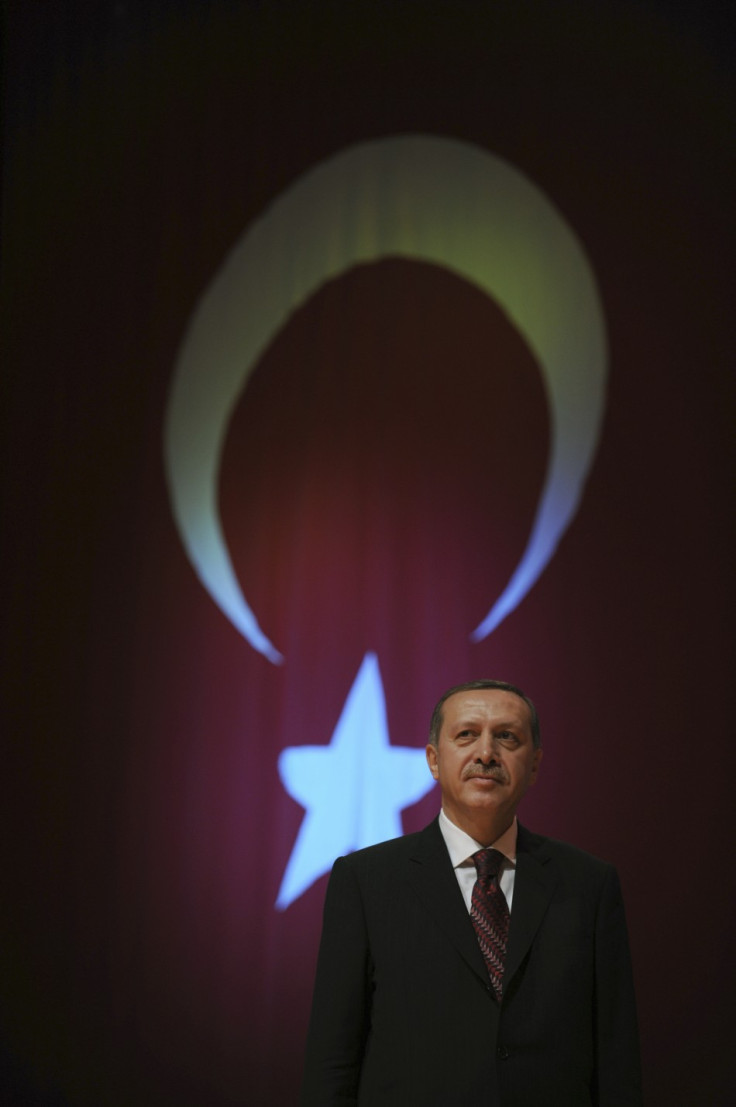Turkey elections: Erdogan's AKP wins third victory

The press in Turkey has welcomed the success of Prime Minister Recep Tayyip Erdogan's Justice and Development Party (AKP) in this weekend's general election.
Mr Erdogan's party won about 50% of the vote, which was enough to secure him a third term in office and constitute an increase of some 3.5 points over the last election. The results however, were still not sufficient to enable his party to make changes to the constitution as the party only won 326 seats instead of the 330 it had previously hoped for.
The election also leaves the AKP with unanswered questions about Erdogan's future. Heading into the elections, the party's forward plan revolved around introducing a new constitution that created a strong presidential system, with Erdogan moving into the president's office after what would be his last term as PM.
However now, the Prime Minister's future is left unclear as it remains unsure whether the AKP can get the other parties to agree to a new constitution that would lead to a presidential system change.
Once Erdogan will finish his term as a PM, which according to his party's bylaw should be the last one, what will he do? Will he attempt to become president under the current system, which will result in him taking over a less-powerful position or will the AKP, revise its bylaws to allow him to run again?
Meanwhile, the main opposition secular Republican People's Party (CHP), which follows the ideology of Turkey's founder Mustafa Kemal Ataturk has had its best results in more than 30 years as it scored about a quarter of the votes. However the party's showing still falls short of the 30 per cent of the vote that it had hoped for. While the results can be seen as a victory, they still raise the question of whether the party can realistically manage to return to power someday. The results reaffirmed Kilicdaroglu as a successful leader for the party but internal dissents voices still accuse him of having failed to capitalize on an opportunity to gain even more votes and get close to the 30 per cent mark.
The MHP nationalist party managed to get over the 10 per cent threshold and won 53 seats. However the results still illustrate the decline of the party that has been plagued by "sex tapes" scandal, since in 2007 they had managed to secure 71 seats. Following the elections, the MHP will now have to question his relevance on the Turkish political landscape and review its future direction.
Also, the pro-Kurdish Peace and Democracy Party (BDP), emerged as one of Sunday's big winners, as it gained an expected 36 seats, up from 2007's 22. The success came as the party, in order to avoid the threshold question, ran all its candidates as independents. The BDP mainly has a tight focus on the Kurdish issue and with its base of support mostly limited to the southeast region, the party is however likely to remain an identity-based party whose role in parliament is to advocate on behalf of a set of issues that have a limited ethnic and regional appeal.
Turkish newspapers were generally supportive of the AKP's victory, hailing Prime Minister Erdogan's leadership despite his ultimate failure to win the so-called "super-majority" he had hoped for, as is ultimate goal is still to change the constitution. Most of the media were also very proud of their country being able to organise free and fair elections at a time where the region is in turmoil.
However as the results were welcome, dozens of individuals were detained by the police on Sunday for attempting fraud in the elections as more than 50 million people participated in the elections.
Despite the tight security measures taken at most polling stations, there were attempts involving fraud, irregularities and pressuring others to vote for a certain political party in the elections, the police claimed.
A majority of the detentions were made in the south eastern provinces where voting began at 7 a.m. as more than 50 people were detained for "attempting to cast their vote with a fake ballot paper, imposing pressure on others to vote for a certain political party and trying to enter the voting booth with a mobile phone", while some were also detained for attempting to vote for relatives who do not reside in their registered districts.
The victory of the AKP came as refugees from Syria are still crossing the Turkish borders in the hope to find shelter in the refugees' camp set up by the neighbouring country. However despite publicly condemning the Assad regime, it seems that Ankara is still standing by Damascus. While the refugees are confined in the camps, Turkish authorities prevent all contact between them and either journalists or ordinary Turks. Turkey's fear is that pressure on the border might spread eastward, into the country's Kurdish areas, which from its standpoint are far more sensitive.
In the next few days however, Erdogan might have to be firmer if the influx of refugees does not decline and Assad still refuses to implement more reforms.
© Copyright IBTimes 2025. All rights reserved.





















